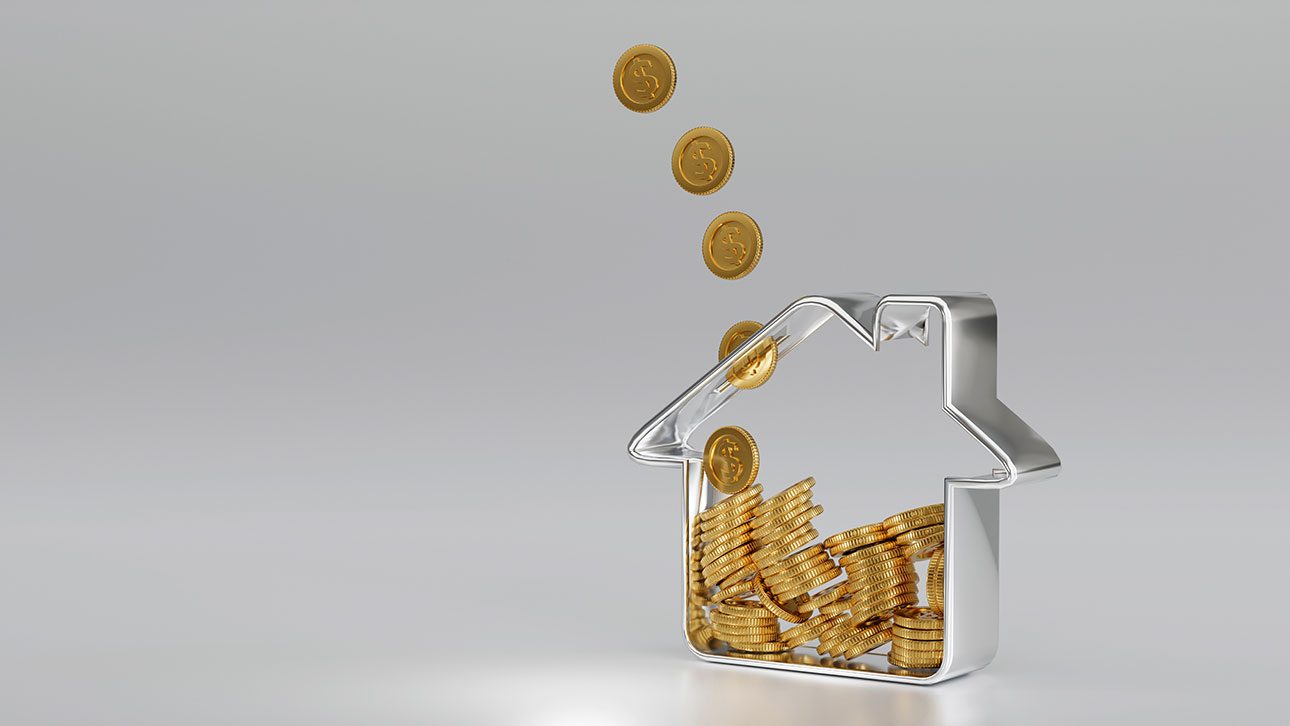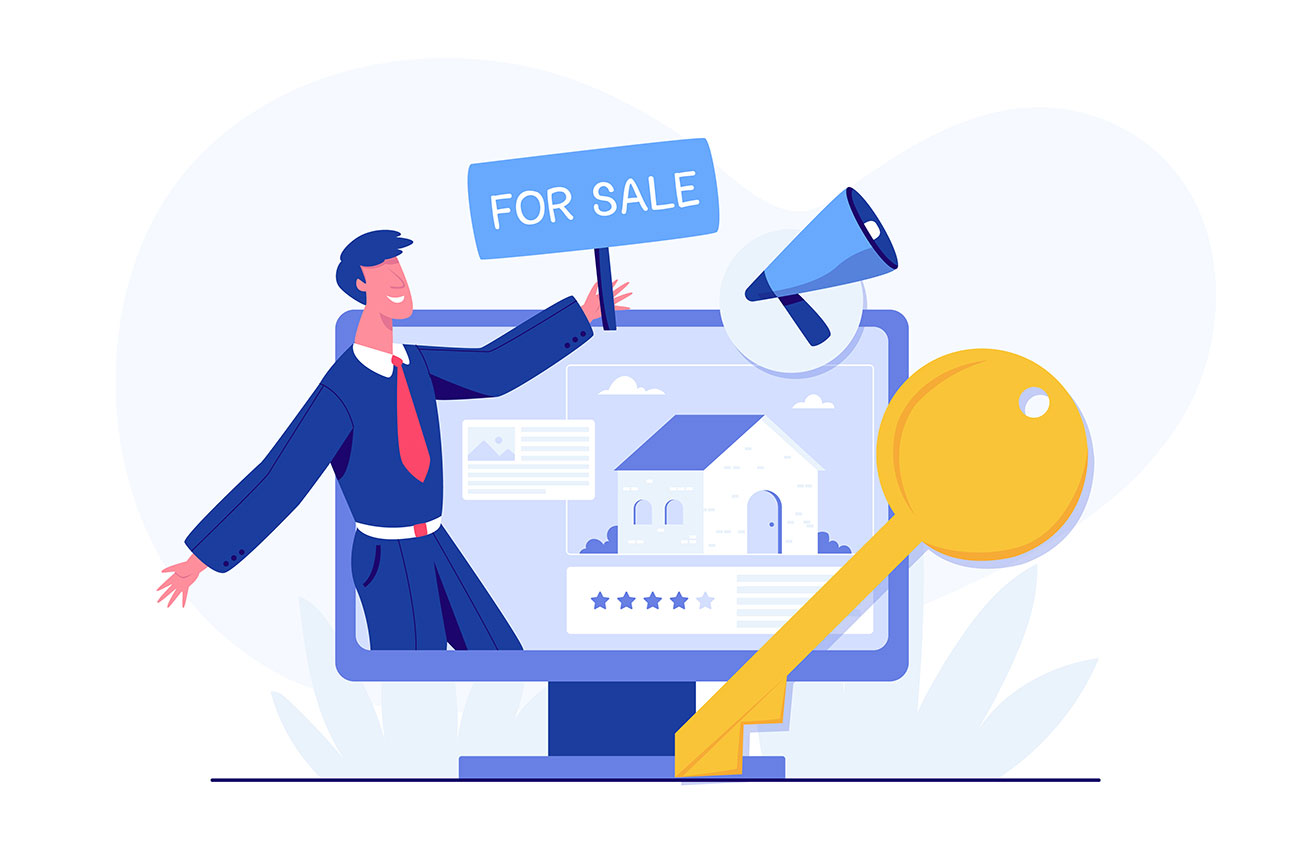Here’s how to buy another house while owning a house
Updated Thu, Jan 8, 2026 - 10 min read
Top blog articles
So, you’re thinking about buying another home while still owning your current one? Whether you’re looking for an investment property, a rental property, or just a change of scenery, this process can be exciting. However, it can also be a tad overwhelming. Here, we’ll try to break down the process of how to buy another house while owning a house for you.
What should be your considerations when buying a second house?
Acquiring a new home before selling your existing one requires a careful balance. Here are some potential steps to navigate this process:
Do your due diligence
You should explore lenders, assess all your financing options, and consider obtaining loan preapproval to determine the loan size you qualify for. Remember that typically, a down payment of 3 to 20 percent is required. Keep in mind that mortgage options and requirements for a loan for a primary residence vs. an investment property differ. For instance, for those purchasing a second home as an investment property, lenders might have stricter requirements. They will likely need a larger down payment and may face higher interest rates.
Check your eligibility for a second mortgage
Before anything else, you’ll need to make sure your financial situation allows for a second home. Mortgage lenders will look at your debt to income ratio (DTI). This is a fancy way of saying how much debt you have compared to your income. If your DTI is too high, lenders might think you’re taking on too much and be hesitant to give you another mortgage.
You can calculate your DTI by adding up your monthly debts and dividing by your pre-tax monthly salary.
Typically, loan lenders mandate a DTI of 43% or lower to grant loan approval for a second mortgage. Of course, the better your credit score, the better your chances of securing a mortgage.
Factor in the closing costs
Remember, buying another home means you’ll have closing costs again – things like appraisal fees, title insurance, and inspection costs. These can add up to 2-5% of the home’s purchase price. So, make sure to budget accordingly.
Work with a licensed real estate professional
A good real estate agent is essential for making sure the process goes smoothly. They can help you navigate the market, find the right property, and negotiate the best deal. Plus, they’ll be able to explain any tax implications or zoning restrictions that might come with owning multiple investment properties.
Include a sales contingency in your real estate contract
If required, introduce a sales contingency into your sale and purchase agreement. This will signify that the purchase of your new home depends on the sale of your old one.
Explore the option of bridge loans
Bridge loans cover the interim period between buying a new home and selling the old one until permanent financing is secured. Note that these loans often have short terms and slightly higher interest rates compared to a first mortgage loan.
Consider HELOC/Home equity loans
You could explore obtaining a home equity line of credit (HELOC) or a home equity loan on your existing property. Be mindful of repaying the HELOC or home equity loan in addition to your original mortgage payment once your old home sells.
Dip into your savings
Although tapping into your retirement account is an option, it may not be advisable due to potential missed investment growth. Alternatives include 401(k) loans with interest rates slightly above the prime rate or Roth IRA withdrawals, keeping in mind the associated penalties and restrictions.
Request a delayed closing
If your home sale is imminent, propose a delayed closing to the sellers of your new home. This may better synchronize the sale of your old home with the purchase of a new one. Consider offering additional earnest money or covering extra closing costs to demonstrate goodwill.
What are your loan options?
You have the option to leverage your home equity. If you’ve built up equity in your current home, you’re in luck! Equity is the difference between what your home is worth and what you owe on it. You can tap into that equity in a couple of ways:
- Home equity loan: This gives you a lump sum of money, which you can use for a down payment on your new home. Keep in mind that you’ll have two mortgages to pay, and the monthly payment for your home equity loan will add to your budget.
- Home equity line of credit (HELOC): This line of credit works more like a credit card, where you can borrow money as needed, up to a certain limit. It’s flexible, but again, it adds another payment on top of your existing mortgage. A HELOC usually has higher interest rates compared to a regular mortgage.
- Cash-out refinance option: Another way to access your home’s equity is with a cash out refinance. This means refinancing your current mortgage for more than what you owe and taking the difference as cash. You can use this cash for the down payment on your next property. While this can be a good option, be cautious – it means you’re taking on a bigger loan and could end up with higher mortgage payments on your primary residence.
What are your financing options for unsecured loans?
If you don’t want to tap into your home’s equity, another route could be using a personal loan. This is a more straightforward option if you only need a small amount of extra cash. However, personal loans tend to have higher interest rates than home mortgages or home equity loans. Therefore, you need to make sure this option makes sense for your situation.
What are the advantages of buying a home before selling the first one?

Opting to buy a new home before selling your current one comes with a set of potential advantages:
- You can move seamlessly from your old home to the new one without the need for temporary housing or storage.
- You can undertake renovations or improvements in the new home before moving in, avoiding the inconvenience of living in a construction zone.
- Being a non-contingent buyer (not relying on the sale of your current home) may give you stronger negotiating power and a competitive edge when making an offer on your new home.
- You can choose an opportune time to sell your existing home, potentially maximizing its sale price in a seller’s market.
- You won’t be under as much pressure to sell quickly, allowing you to wait for the right buyer and a favorable selling price.
- And, there’s no pressure to wait to buy your dream home. While the real estate market has seen a cooling off in the past couple of years, the inventory remains limited. If you come across your ideal home, you can avoid the delay of waiting to sell your primary residence.
- You don’t have to live in the house while organizing open houses and private showings.
What are the drawbacks of buying a second home without selling the first one?
- There can be a financial crunch when it comes to buying another house before selling the current one. Typically, individuals utilize the proceeds from their current home to buy a new one, using some of the cash for a down payment at the very least. Unless you have substantial savings or investments that can be easily liquidated, purchasing a home before selling yours may require careful consideration of how to finance it.
- Financing two homes means dealing with additional interest payments and possibly higher loan fees.
- Managing two mortgages simultaneously can strain your finances, potentially leading to increased debt or financial stress.
- Owning two properties means dealing with the ongoing costs of maintenance, property taxes, insurance, and possibly homeowner association fees for both homes.
- The real estate market is unpredictable, and if it takes longer than expected to sell your first home, you may find yourself in a less favorable market condition when you eventually sell.
- If you’re not planning to rent out your first home, it may sit vacant, which can pose security and maintenance challenges.
How to buy another house while owning a house?
- Decide where to buy your second home. If buying for rental income, calculate the property’s profitability and local demand. And, always consider housing market trends, interest rates, and timing to stay on top of your home-buying game.
- Determine your financing and mortgage options. Note that government-backed loans such as VA and FHA loans aren’t for second homes.
- Get loan preapproval. It will help start the mortgage process early and eliminate surprises during closing.
- Hire a good real estate agent.
- Close the deal. This takes about 30-40 days. You will have to factor in hiring a real estate attorney, buying homeowners and title insurance, scheduling home inspections, waiting for appraisal results, arranging a final walk-through, and finally, closing on your second home.
What are the alternatives to buying a house before selling the first one?

Feeling wary about buying a new home before selling your current one? Here are some alternatives to consider:
Rent out your old home
Rather than immediately putting your old home up for sale, explore the option of renting it out. The rental income can help offset the expenses of your new home.
Moreover, while a primary residence can’t be depreciated, turning it into a rental property unlocks some tax benefits.
Real estate investment is a proven way to build cash flow and wealth. For instance, over the last decade, median home prices have increased drastically, suggesting potential appreciation. Rather than selling, many investors choose to buy and hold rental property for long-term financial growth.
Sell to a real estate brokerage
Some real estate brokerages provide a cash-for-homes service. They may guarantee to purchase your property, and in some cases, even provide funds for your new home purchase. If you buy a property within their network, it could be an added advantage. Regardless, consider engaging a knowledgeable real estate agent, especially one skilled in quick home sales or adept at representing both buyers and sellers.
Sell your home first and then buy
Opt for selling your current home before venturing into a new purchase. While this approach might mean missing out on a desirable property, it can save you the hassle of managing financing and payments on both a new loan and your existing mortgage.
Read more: Why are there no houses for sale?
How to buy another house while owning a house: Last thoughts
To purchase another home while you still own one is totally doable — it just takes some extra financial planning. Whether you’re looking to buy a primary residence or an investment property, make sure you weigh the pros and cons, work with your mortgage lender, and take advantage of any equity you’ve built up.









